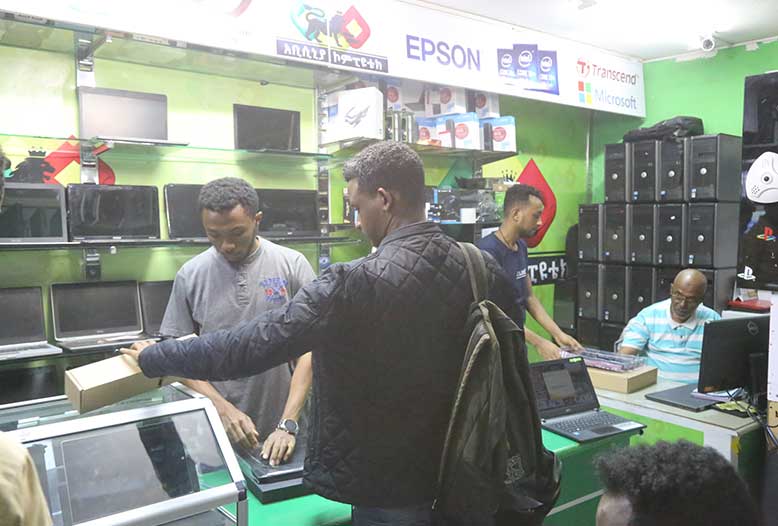
Agenda | Sep 28,2019
Dietrich Rogge, founder and CEO of Rockstone, a German-based real estate developer and investment company, did not want an Anglo-Saxon name for the project it embarked on in Ethiopia. A rare European player in a real estate market dominated by local players, it wanted to signal the height it wants to reach with a green building. He also wanted it to fit into the context of the city, both spatially and in terms of name recognition.
So the company gave its Ethiopian project, a sprawling apartment complex meant to cater to the higher-income segment, the Amharic name Kefita. With a plot in the Signal area, Rogge insists that Kefita is just the beginning and that he sees a real estate market that is only getting started - "I'm optimistic," he says - in his one-on-one with Fortune's Op-Ed Editor, Christian Tesfaye.
Fortune: It is rare for a European company to be interested in the real estate industry of Ethiopia. Less so for a company such as yours that targets an upper market segment. Are there not markets that Rockstone should target and exhaust - say in Asia or Latin America - before embarking in one of the least wealthy countries in the world?
We do residential and office projects. I ventured early on a few years ago to other European countries – such as Spain and Portugal. I see real estate not only on a country basis but on a global scale.
Three years ago, I was talking to a very dear friend of mine who is based in Nairobi. He is investing a lot in East Africa. I said, “I would really like to do something in Africa.” That was driven by myself on the business level to diversify to other markets. It was also me trying to get exposed to different and genuine cultures. And then we embarked on trying to understand what countries there are in East Africa which might make sense.
He took me to Addis Abeba three years ago. I was impressed at the strength and the size of the country; by the richness of the people. At the same time, there are all of these organisations – like the headquarters of the African Union and the UN-ECA. This is not to mention Africa’s best airline, Ethiopian, which is great in terms of connectivity to the country and Europe. I was driven by vast opportunities.
Going through the city, I saw a lot of stuff going on, lots of construction. But also, lots of unfinished things.
Q: Why was that?
Well, for one, there was a lot of issues with foreign currency. It is just not easy to finish these things. But there is also the issue of deliverability. So, if I go to Africa, I want to go to a place where I could be long-term. This is the place for that. It is a huge market. If you get it right with the first few products – such as our Kefita – this is a great venture.
We are not coming here saying that we know better. It is to create something very authentic embedded in the Ethiopian culture, which you can see visibly. At the same time trying to transfer some know-how and best practices from Germany to come up with a genuine product and then live in and build a community where both Ethiopians and ex-pats can come together.
Q: You mention deliverability or the lack of it. Are you referring to the trust issue that the real estate market in Ethiopia faces in terms of delivering on time? Is that where German efficiency would come, the sort of gap you believe you can fill?
When I came here first, I thought there are a lot of buildings here, but why are they unfinished? One, foreign currency is needed to do that. But also, it is having the right set of people who can deliver on the promise.
Those in the market are not failing to deliver on purpose. It is not easy to do. It is a tough process to finish a building. I know from Germany. But that is what brought us here. We worked very hard for the last year and a half to be now in a position to say that we will deliver in 2023.
Hopefully, we can bring in some of the traits in terms of efficiency, trustworthiness and delivering. We want to build a brand name that is hopefully seen by people who say, “if you buy there, you will get good quality, and they stick to what they promise in terms of timeline.”
Q: So you first inclined yourself into coming into Ethiopia in 2017; Rockstone became active here in 2018; and preparations in acquiring the building permit, design and choosing a general contractor went on in 2020. The country has not been the same throughout this period, no less has been the armed conflict that broke out in early November in the north. Is this still as appetising a market as you imagined back in 2017?
Ethiopia is a large country. There are obviously a lot of different political issues going on. The country is evolving on where it wants to go to. That is one side of the coin.
The other side is driven by the economic aspect. One common goal there is irrespective of other discussions that are going on politically is that there needs to be an economic model driven by growth – heavy growth as the population increases to create jobs, improve incomes and create a middle class. This is something everybody subscribes to.
The essence of what I am doing is trying to be a part of creating growth and prosperity by building properties bought by people that invest. We invest, they invest again, they pay something monthly, and then they consume here once they settle. We are trying to contribute to the trajectory of economic growth, which has been there fantastically over the past 15 years. There will be also, I am sure, for the next 15 years, because people want that to be the case.
I have been here for three years. My confidence has not changed in Ethiopia’s ability to grow and create prosperity. I can see also people’s confidence to invest in real estate which, from where I am standing, has stood the way it is or perhaps has even increased. People know that real assets and real estate are lasting. This is not to mention that Addis Abeba is a big metropolis, with many international organisations based here, and this unique set of people and community. I am optimistic.
Q: Would you say that this administration's liberal economic outlook is part of the appeal to invest in the country? Does that add to your optimism?
We actually entered Addis Abeba before this administration came. We saw and see the opportunities in Ethiopia before any such new policies and regulations were being considered.
If any policy changes are in the works that help in this regard, that is even better for us. It helps my optimism in the real estate sector.
Q: How about the decision to try and tap into the high-end market? Is it in any way influenced by the outlook of the current administration?
We joined the high-end market, because it is intuitive if you come from Europe. You need to add value to the kind of product you are creating. Our product is for Ethiopians who buy it and either stay themselves or rent it out. To the higher segment, we can contribute in terms of how people want to live – an authentic Ethiopian product but also something that attracts the international community.
We understand that housing is a fundamental issue for every country. What do cities such as Los Angeles, Berlin and Addis Abeba have in common? They all have a housing crisis though they are vastly different. They have to make sure that they provide enough housing for everybody: for the higher and medium-end and social housing. These are opportunities for real estate developers like me to engage in all of these segments.
Q: The price of housing has been significantly escalating over the past decade, especially in Addis Abeba. This has pushed low-income households out of the city centres. This is also a market that you wish to engage in?
The problem of big cities everywhere is that prices of houses increase so quickly that it pushes out too many others. We do not want this. We need to have many people living in our cities. I want to do all sorts of housing.
We entered the market on the high-end segment, because that is where we can add value, but in the future, we will be happy to see if there are opportunities to collaborate with government authorities to deliver public housing.
Q: Kefita is in the process of receiving a green building certification. If it does, it will make it the first in Ethiopia. This entails that you would need to use building materials that are not standard and thus not commonly found in Ethiopia. How does this tally in terms of expense and achievability?
That is also another reason why we are starting first with the higher housing segment. We want to create a building that helps us transfer know-how and best practices from what we are doing in Germany in terms of how quality floor plans look, how building technologies work. One aspect of this is making it a green building.
In the context of Ethiopia, finding the right balance is important. How much can people afford? The building might drive more imports and make it more expensive, but we still have to stay within a certain price range, even though we are in the higher segment.
I am confident that we will get that certification. We are monitoring closely what we have to do to get that done. But we also want to make it part of the brand we are building with Rockstone. We know it is not common now in Ethiopia, but it will be in 10, 20 years because it needs to be.
We try to contribute to this trajectory, which the government and the community are trying to get to.
Q: There is a continuing political debate over how Addis Abeba is being shaped and the loss of its historic neighbourhoods, community and buildings. Some say that the boom of tall, glass-clad buildings is an attempt at Dubai-ising the city. How does Kefita fit into Addis Abeba?
I understand that notion of “Oh, it’s changing too fast.” There are two answers to this. One is that you cannot stop the development of cities, because that is where most people go. Why? Large cities are better at offering prosperity in the short-term.
And if they grow, they either do horizontally or vertically. Most cities over the last couple of hundred years have grown vertically. I have seen a map of New York City in the 18th century. All of Manhattan had zoning in place for four floors. It is not the case today.
Now, how quickly it grows and how you can maintain an authentic look of this city, that is where the government comes into play. In Europe, it is pretty regulated. We also want to preserve the beauty of our cities. Go to Rome or Munich – Europe looks different to, say, Dubai or New York City. It is because it has more zoning in place, more regulation where you cannot do whatever you want to do.
Every jurisdiction finds its own answer to how much they want to regulate how cities change. That is what you are doing here, increasingly putting in place regulations. Our response at Kefita has been to create a look and feel that is not another one of these monotonic looking buildings.
We are trying to create a building that at least makes people say, “Well, that’s different.” If you walk around Addis, you will not say that you have seen 10 other Kefitas. Hopefully, it becomes an instant classic.
Q: There are few similarities between Germany and Ethiopia when it comes to doing business and their respective real estate industries. Is the experience you have had until now one that incentivises continued engagement?
As opposed to conventional wisdom or what you would expect going into a new country as an investor, everything that has to do with the business – buying the plot, getting the building licensed – which all require working together with government, has actually been much smoother than expected.
It is not always worse going into another market compared to what you are used to at home. Also, we have a great team of local partners. It is authentic. It is not Germans flying in here every three weeks and talking to people. We have Ethiopians working with us here. That helped to create a very positive surprise.
PUBLISHED ON
Dec 12,2020 [ VOL
21 , NO
1076]

Agenda | Sep 28,2019
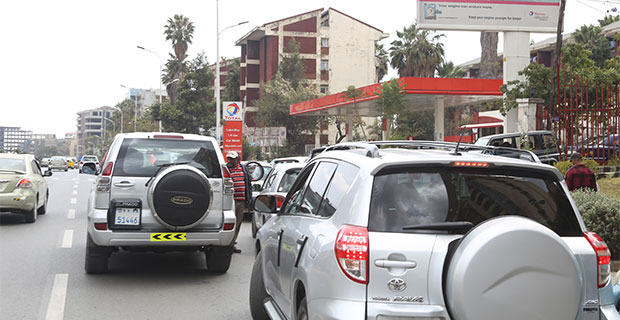
Agenda | Mar 06,2021
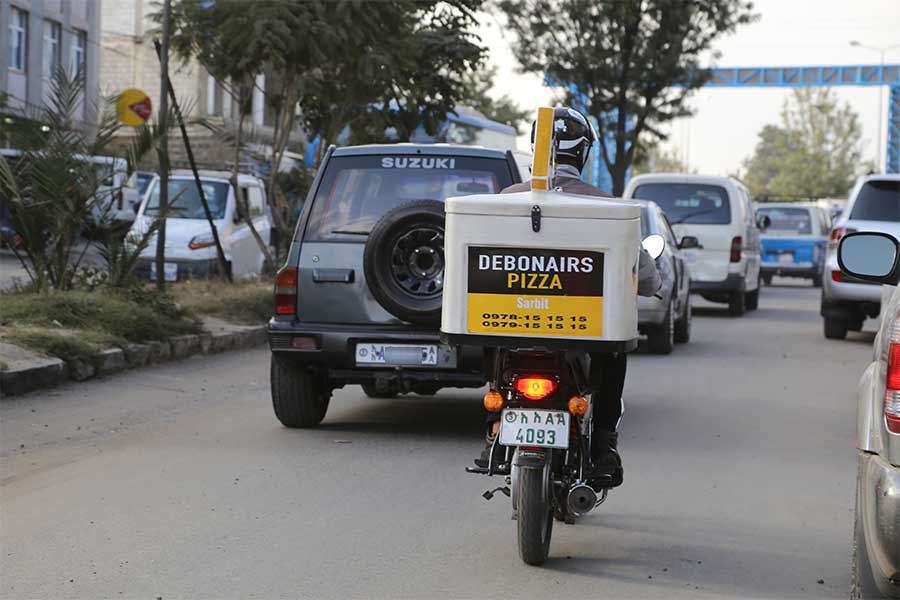
Featured | Nov 23,2019
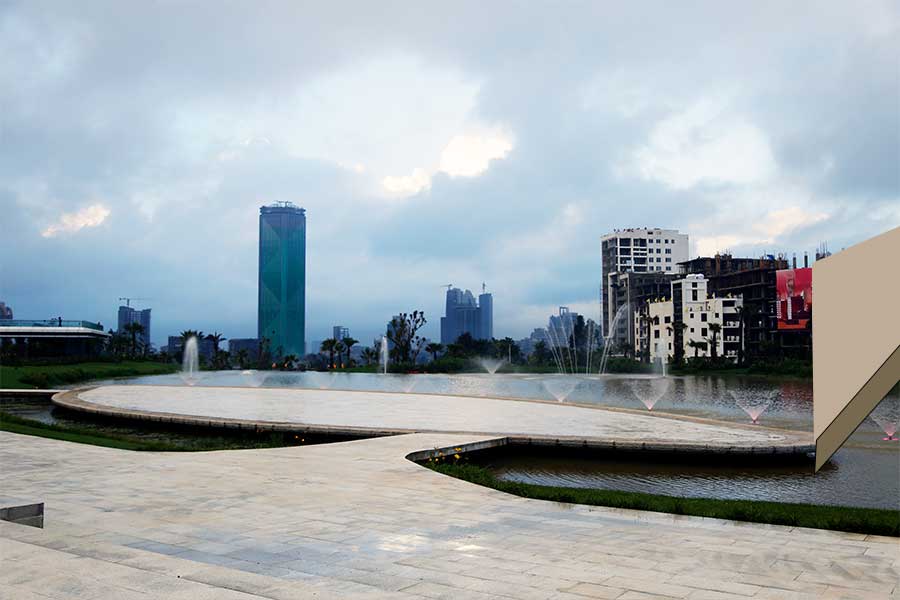
View From Arada | Sep 19,2020

Life Matters | Sep 11,2020

Fortune News | Jun 19,2021

Radar | Dec 19,2021

Fortune News | May 01,2022

Films Review | Nov 17,2018
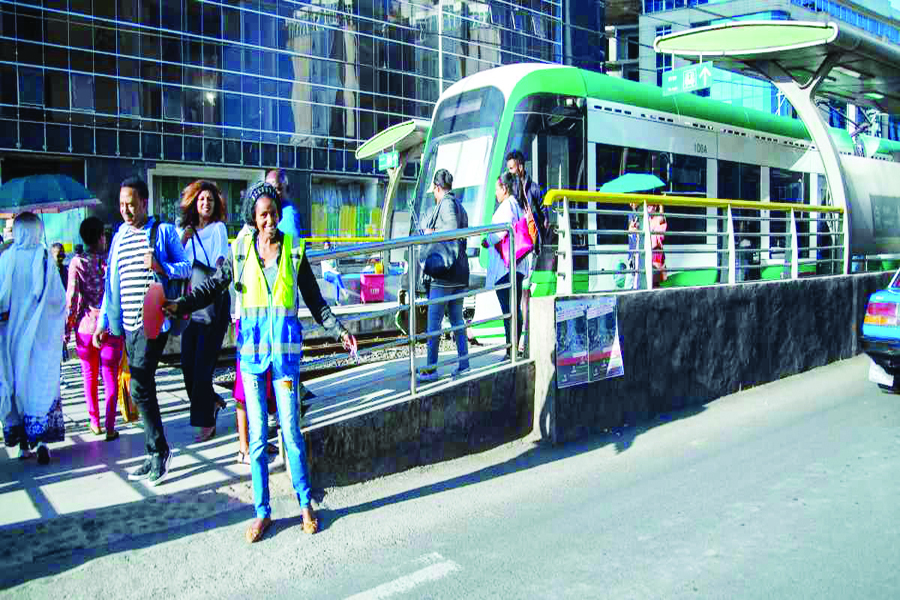
Fortune News | Jul 07,2024

Dec 22 , 2024 . By TIZITA SHEWAFERAW
Charged with transforming colossal state-owned enterprises into modern and competitiv...

Aug 18 , 2024 . By AKSAH ITALO
Although predictable Yonas Zerihun's job in the ride-hailing service is not immune to...

Jul 28 , 2024 . By TIZITA SHEWAFERAW
Unhabitual, perhaps too many, Samuel Gebreyohannes, 38, used to occasionally enjoy a couple of beers at breakfast. However, he recently swit...

Jul 13 , 2024 . By AKSAH ITALO
Investors who rely on tractors, trucks, and field vehicles for commuting, transporting commodities, and f...

Sep 13 , 2025
At its launch in Nairobi two years ago, the Africa Climate Summit was billed as the f...

Sep 6 , 2025
The dawn of a new year is more than a simple turning of the calendar. It is a moment...

Aug 30 , 2025
For Germans, Otto von Bismarck is first remembered as the architect of a unified nati...

Aug 23 , 2025
Banks have a new obsession. After decades chasing deposits and, more recently, digita...